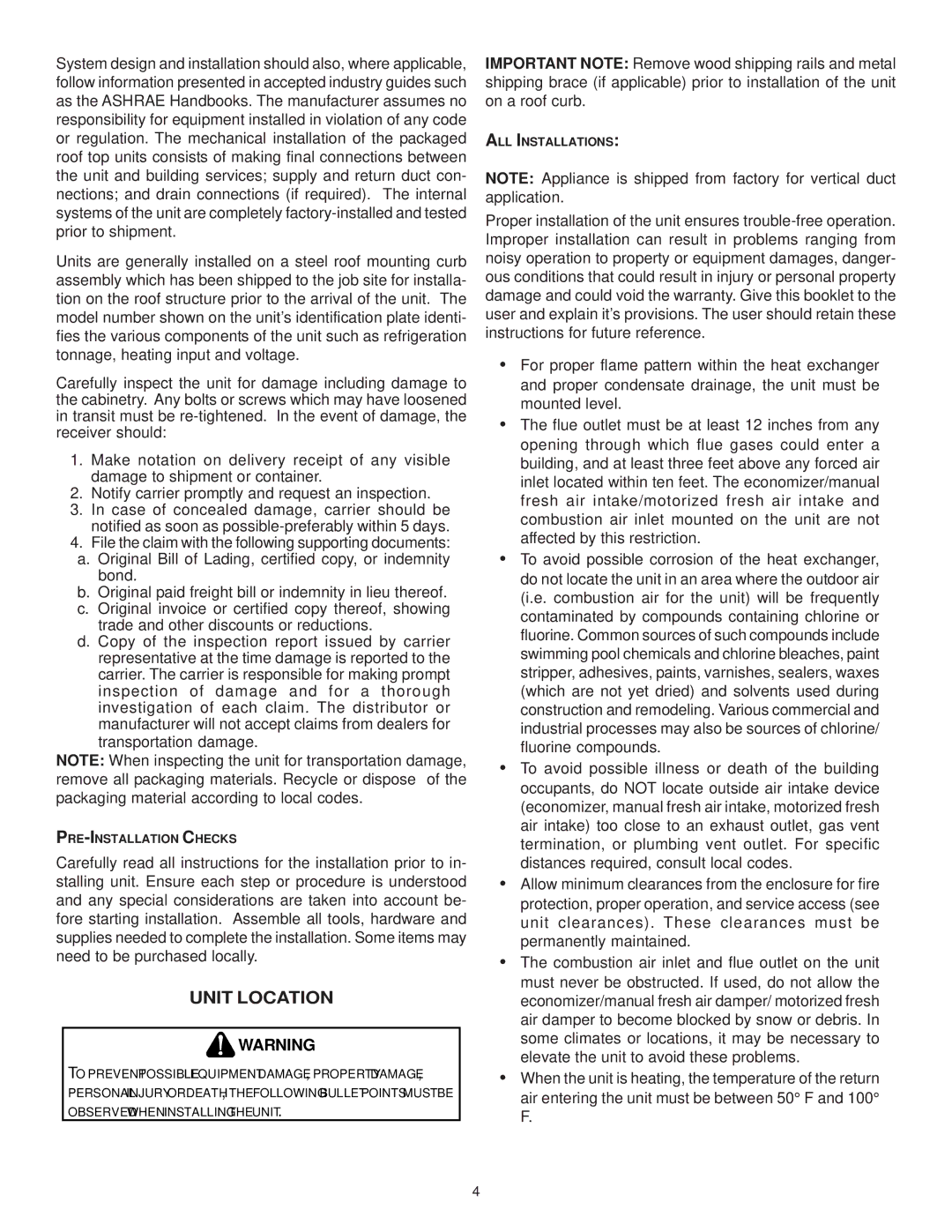CPG SERIES specifications
Goodman Manufacturing has long been a trusted name in the HVAC industry, known for delivering reliable and efficient heating and cooling solutions. Among its impressive lineup is the CPG series, a collection of packaged units that cater to a wide range of residential and commercial applications. The CPG series is designed with the latest technologies and features, making it an ideal choice for those seeking comfort and performance.One of the most significant characteristics of the CPG series is its energy efficiency. Engineered to meet rigorous energy standards, these units utilize advanced refrigerant technologies that not only lower energy consumption but also contribute to reducing environmental impact. The high-efficiency scroll compressor within the CPG series is designed to operate quietly and smoothly, ensuring that homeowners enjoy a comfortable indoor environment without disruptive noise.
The CPG series also stands out with its robust construction. Each unit is crafted from durable materials that can withstand various weather conditions, ensuring longevity and reliability. The all-aluminum evaporator coil enhances corrosion resistance, prolonging the unit's lifespan and maintaining optimal performance throughout its operation.
In terms of features, the CPG series offers an integrated microprocessor control system that optimizes performance based on real-time environmental data. This smart technology allows for accurate temperature control and improved efficiency by adapting to changing conditions. Furthermore, the series provides multiple capacity options, making it flexible for various building sizes and requirements.
Ease of installation and maintenance is another hallmark of the CPG series. These packaged units are designed for quick setup, reducing labor costs and installation time. Additionally, the access panels on the units are strategically placed, facilitating easier maintenance and servicing. This advantage not only enhances user convenience but also ensures that the units operate efficiently for years to come.
Moreover, the CPG series supports various accessories and enhancements, such as advanced filtration systems and programmable thermostats, allowing users to customize their HVAC system based on specific needs and preferences.
In conclusion, the Goodman CPG series embodies a perfect blend of efficiency, durability, and technology. With its focus on energy savings and user-friendly design, it represents a sound investment for those seeking superior HVAC solutions for their homes or commercial spaces. Whether it's for new construction or an upgrade to an existing system, the CPG series offers performance and reliability that customers can depend on.

